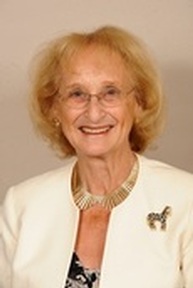Making a difference to the lives of adults and children with autism: 'the hidden disability'
Studies of autism care services show people with the condition commonly encounter significant barriers when it comes to getting help.

A recent study by NICE (the National Institute for Health and Care Excellence) concluded that a higher level of training is needed among health professionals to appreciate the differing challenges that autism can present among different age ranges.
As Professor Gillian Baird, consultant paediatrician at Guy’s and St Thomas’ NHS Foundation Trust explains: “Many people who have autism will have other physical, neurodevelopmental or mental health conditions such as intellectual disability, attention deficit hyperactivity disorder, anxiety and sleep problems which are not always recognised.
“Assessment needs to be tailored to the individual and their families or carers, to enable them to get the right intervention and support from education, health services and voluntary organisations.”
One in a hundred people in the UK has autism and while some are able to live relatively independent lives, others may need a lifetime of specialist support.
Sue McLean, director of care services and outcomes at Community Integrated Care, shares with homecare.co.uk her own perspective on reaching out to families who have relatives with autism, as her company looks to make services more accessible. CIC supports hundreds of people with autism.
She says: “All good care and support providers should want to build the very best services possible for people with autism; services which genuinely encourage independence, empower people to make their own choices, achieve their ambitions, and ultimately, enable people on the autistic spectrum to enjoy the fulfilled lives we all aspire to lead.
“But, there is a crucial step before doing any of this and that is making sure that the people who need support, actually know that it is out there for them.”
Autism can be a particularly isolating condition, described as ‘the hidden disability’ – not only because it has no physical signs but also because adults with autism are some of the most excluded and least visible people in the UK.
Consequently, Ms McLean says “as a provider we have to build the best services we can, we also need to ensure that these services are visible and accessible to the people who really need them”.
Ms McLean claims building strong relationships with commissioners, social work teams and care managers is key. Often people on the autism spectrum, and their families, will already have established links with their local authority and will rely upon their advice and guidance.
“Commissioners have a duty to ensure that they are giving people choice and control over the support they receive and, by building these positive relationships, they are able to draw upon a wider pool of providers. This is perhaps best evidenced at local events set up by commissioning and social work teams, such as provider fairs, which give people with autism the opportunity to meet all of the local providers in their area and decide who is best placed to support them.”
There is no better way to help people understand how they can access and benefit from support than by letting them see for themselves the impact that good services can have.
CIC has found that having an ‘open-door’ policy, when appropriate, “where we invite families into our services to see for themselves what good support looks like, really does have a positive effect. We find that many of the people we support and their loved ones are often eager to act as ambassadors for their services and to share their experiences, because they are keen to help other people seeking support.”

“We know that for many people with autism and their loved ones, particularly young adults in transition, finding support services can be a really daunting and unsettling time. Offering emotional support, which can so often be lacking during the process of finding care, really helps breaks down barriers and put people at ease. So, for example, we often put families in touch with other families who we work with, so that people can feel assured that they aren’t alone and receive some guidance from people who have had similar experiences to them.
“Indeed, creating environments which people feel comfortable in and understood, is very much at the heart of making services accessible and breaking down those barriers. So, for example, where English isn’t the first language of a person supported, we work with them to recruit staff who do have the same language and cultural backgrounds as them, so support is properly tailored to that person in a way that is right for them.”
Home care providers should also work on a national level and build up strategic partnerships with leading organisations at the forefront of the autism field, such as the National Autistic Society (NAS), which for many families is the first port of call when seeking help and advice.
The NAS supports services to achieve Autism Accreditation status – which shows they are quality services for people with autism.
In May 2013, NAS launched its Push for Action campaign in England to turn the Autism Act into action and ensure all adults with autism get the everyday support they need.
Earlier this year, NAS also convened an informal, ad hoc commission of members of the House of Lords to look at the challenges facing older people with autism and their families.
Baroness Greengross said: “I have worked in older people’s policy for over thirty years. But during this time I’ve heard little about older adults with autism. In part, this is because the first generation of adults diagnosed with autism is only now moving into older age. But it is also because this group has simply been overlooked.”

The report from the commission 'Getting on? Growing older with autism' called for:
• Healthcare professionals working in age-related specialisms to be trained in autism
• Local NHS bodies to make counselling available to people with autism after they have been diagnosed, where this is not already available
• Older people to not be disadvantaged in diagnosis by the need to provide evidence of their developmental history, if this is not available
• The Department of Health to fund research on overcoming the challenges posed by diagnosing older adults with autism
The task of reaching out to ethnic minorities is another focus of NAS. Tom Madders, head of campaigns at NAS, explains why this is so important, saying: “Anecdotally, we know that people with autism from ethnic minority backgrounds face huge challenges. We frequently hear from individuals and families who say that cultural and language barriers prevent them from accessing the support they desperately need.
“But there are no robust statistics to show the true state of affairs for people from BME communities. This needs to be urgently assessed, so that local authorities can properly map out how they can deliver the support and services people with autism need.”
The campaign was launched with the help of MP Diane Abbott, who commented: “This campaign highlights an incredibly important issue. Many of my constituents from ethnic minority communities struggle to receive the Special Educational Needs support they need for their children, and these difficult experiences are replicated across the UK. It’s vital that we do more to understand autism and its impact on black and ethnic minority communities – we hope this campaign is a first step towards a greater understanding and better support.”
Latest Features News
 28-Nov-19
2019 Election: Labour pledges £10.8 bn for free personal care while Boris Johnson sidelines social care
28-Nov-19
2019 Election: Labour pledges £10.8 bn for free personal care while Boris Johnson sidelines social care
 18-Oct-19
Podcast: Wendy Mitchell and dementia: 'My biggest fear is not knowing who my daughters are'
18-Oct-19
Podcast: Wendy Mitchell and dementia: 'My biggest fear is not knowing who my daughters are'
 30-Sep-19
World's oldest diver aged 96 says 'never accept the fact you are getting old'
30-Sep-19
World's oldest diver aged 96 says 'never accept the fact you are getting old'
 27-Sep-19
Exclusive: Care minister backs care workers' call for time off to grieve and attend funerals
27-Sep-19
Exclusive: Care minister backs care workers' call for time off to grieve and attend funerals
 20-Sep-19
Podcast: Gyles Brandreth urges care workers to learn poetry with elderly
20-Sep-19
Podcast: Gyles Brandreth urges care workers to learn poetry with elderly